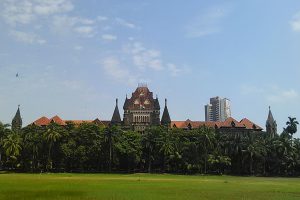Bombay High Court: A Vacation Bench of Ravindra V. Ghuge, J., allowed the petitioner, a transgender person, to contest the panchayat elections from a seat reserved for women candidate.
Backdrop
The petitioner was aggrieved by the rejection of her nomination form by the Returning Officer. She had decided to choose the female gender, and hence had tendered her nomination form for contesting the election from the ward reserved for women-general category. The reason for rejecting the nomination form was that the petitioner is a transgender. It was stated that there is no reservation for the transgender category in the instant village panchayat elections.
Submissions
A.P. Bhandari, Advocate for the petitioner, on instructions, made a categoric statement before the High Court that this was the first occasion wherein the petitioner had opted for a right to a self-perceived gender identity and had selected the female gender for all purposes during her lifetime. He submitted that the petitioner, henceforth, shall not switch over to the male gender under any circumstances anytime in future during her lifetime.
S.B. Pulkundwar, AGP, and A.B. Kadethankar, Advocate for the Election Commission, submitted that they would not argue beyond the provisions of law and would not make submissions contrary to the law laid down by the Supreme Court in National Legal Services Authority v. Union of India, (2014) 5 SCC 438. It was stated that the Returning Officer was likely to be unaware of the law and must have been in a dilemma while deciding the issue of acceptance of the nomination form of the petitioner.
Analysis & Decision
The High Court relied heavily on and followed the law laid down in the “NALSA case” [National Legal Services Authority v. Union of India, (2014) 5 SCC 438] wherein the Supreme Court has comprehensively dealt with the issue of the rights of transgender people. The Court noted that the Government of India has introduced the Transgender Persons (Protection of Rights) Act, 2019 and has permitted a transgender person to have a right to be recognised and such transgender is permitted to have a right to self-perceived gender identity.
In the present case, the petitioner had opted for the female gender as her self-perceived gender identity and made a solemn statement, which was recorded as the statement made to the Court, that henceforth in her lifetime she would not switch over to the male gender driven by opportunism and would continue to opt for the female gender, in future, save and except if there is a reservation provided for transgender in public life.
It was observed by the Court:
“It is quite apparent that the Returning Officer was handicapped insofar as the knowledge of law was concerned while deciding the fate of the nomination form of the petitioner. No other contesting candidate has taken any objection against the petitioner. It is the Returning Officer, who was circumspect about the nomination form of the petitioner and hence, opted to reject the form believing that the petitioner can neither be a male nor a female and the ward has been reserved for women general category. There is no ward reserved for the transgender.”
In view of the above, this writ petition filed by the petitioner was allowed. The impugned order passed by the Returning Officer was quashed and set aside. Since the nomination form of the petitioner was otherwise complete in all respects, the same stood accepted and she was permitted to contest the election from the ward and category which she had opted for in her nomination form. [Anjali Guru Sanjana Jaan v. State of Maharashtra, 2021 SCC OnLine Bom 11, decided on 2-1-2021]

